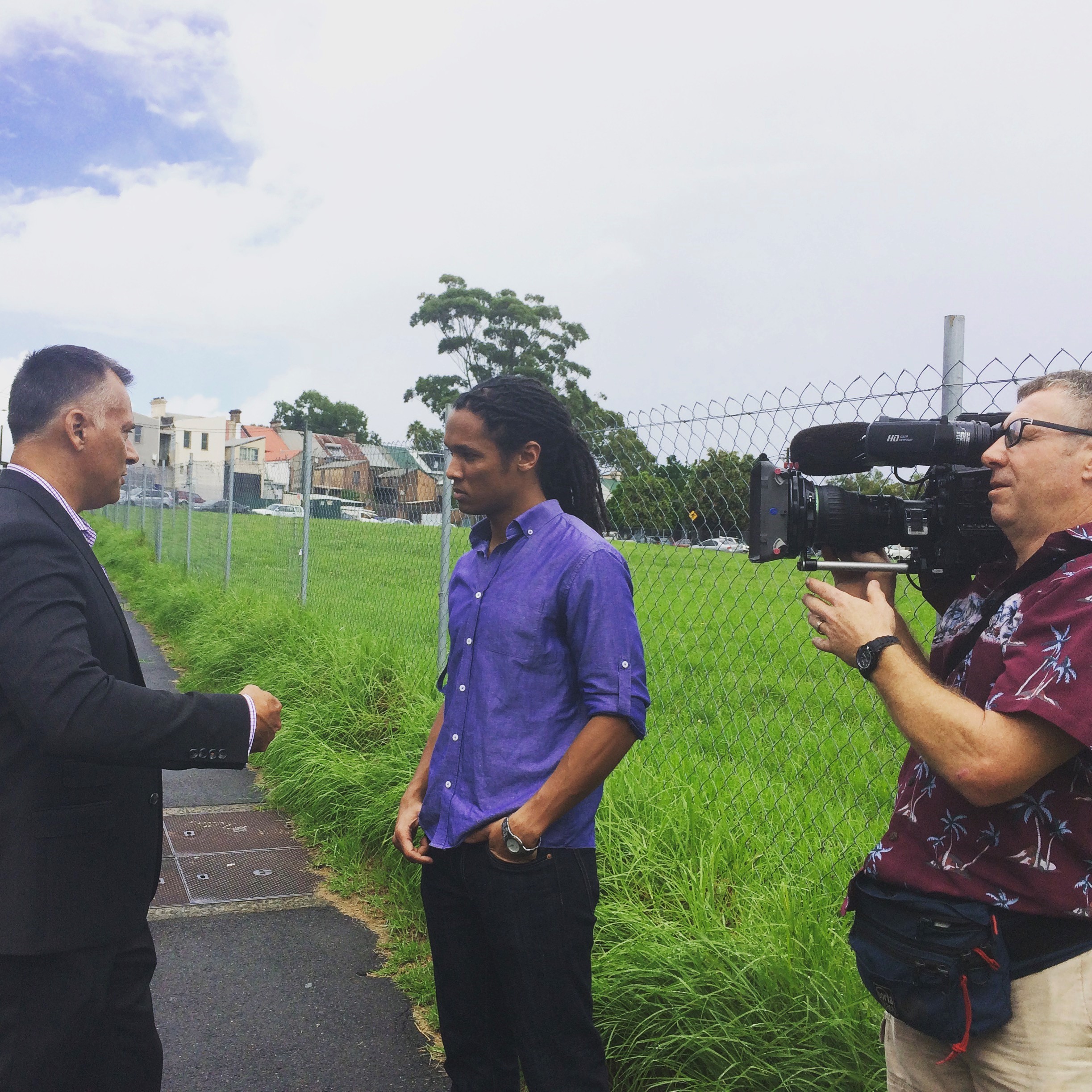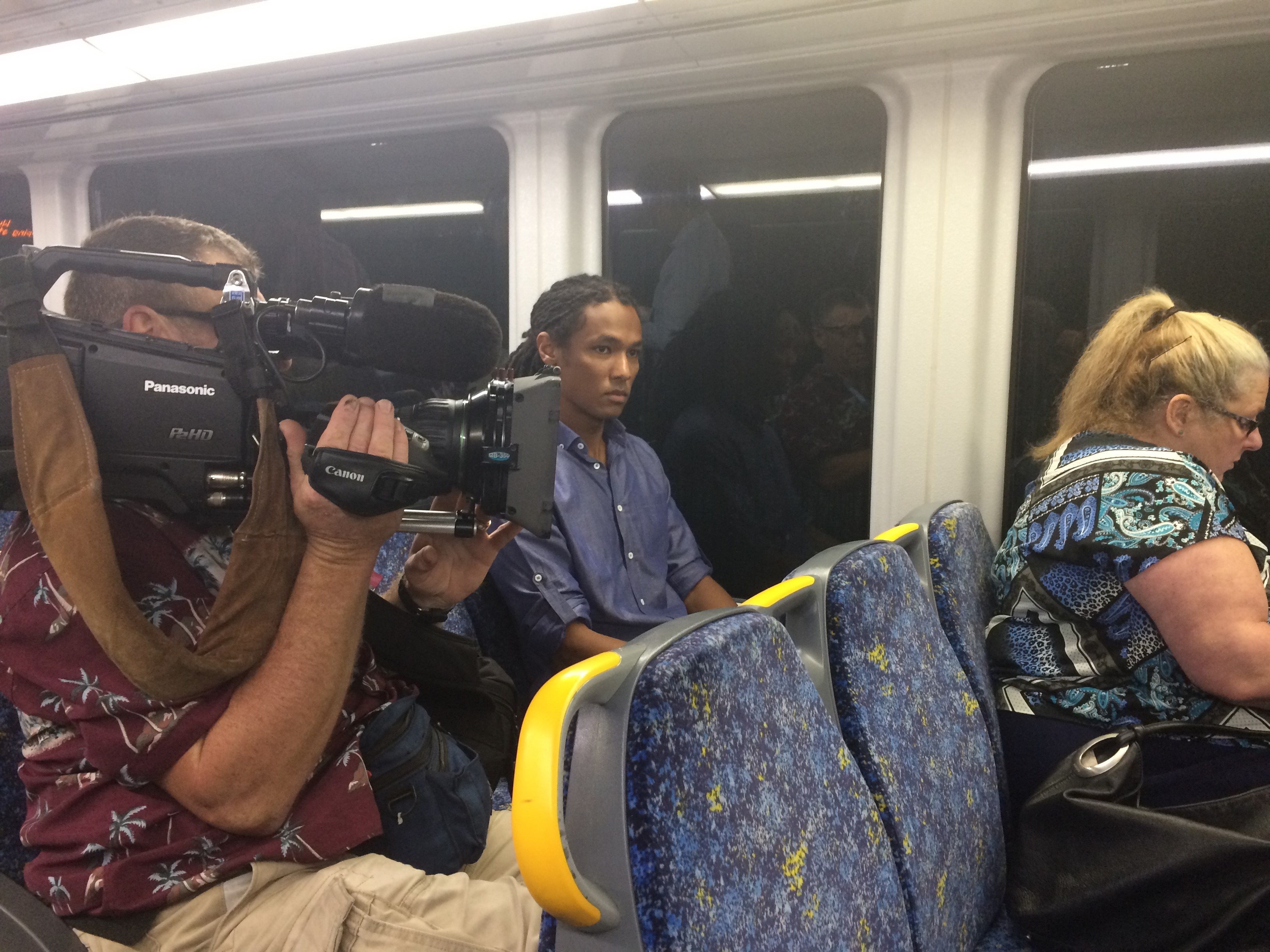This article is the second in a series of profiles spotlighting the work of Black journalists at all levels of media. We began discussing this as a series for Black History Month in February, but realized the value of highlighting Black voices extends far beyond a month. We're using this series to keep the conversation going. If you'd like to share your own experience as a Black journalist, email dmaas@icfj.org.
When John Eligon first entered the news industry in 2004, he reported on a topic he loved: sports, for the Detroit Free Press. A year later, he joined The New York Times as a general assignment reporter, to cover criminal courts and local government.
He reported international stories, as well. For instance, the death of Nelson Mandela and the 2006 Winter Olympics in Turin.
In 2014, Eligon's career changed course. The killing of Michael Brown in Ferguson, Missouri, ignited a reckoning that spurred much-needed conversations about race in America. Eligon reported on the protests in Missouri, and shortly after was promoted to a national correspondent. The promotion officially launched a new role Eligon took on, reporting on race.
He viewed his new beat as an opportunity to see “how race functions in our day-to-day lives.” In this role, he has been able to report at the forefront of a conversation that is historically influential, and which sparked today’s Black Lives Matter Movement.
[Read more: Building a journalism career in a pandemic: Q&A with Korey Matthews]
Eligon and his family are originally from Trinidad and Tobago, a country whose population is largely Black and East Indian. His family moved to the U.S. when he was six years old. He remembers being fascinated as a young boy by little changes in his life, like the TV set showing the volume, and having carpeting in the apartment.
Growing up in the U.S., he was unaware of the racial divide. It wasn’t until high school that Eligon felt different — in large part because he is Black. He attended a predominantly white high school where he had only a few Black classmates. When conversations about race surfaced, he was unsure how to handle them. It was sitcoms like “The Fresh Prince of Bel-Air,” “Good Times,” and “The Jeffersons” that taught him about being Black in America.
“I remember innately feeling that sense of, ‘I can't really define my identity as being Black,’ because there's nowhere we could speak up about being Black, or I felt I had the courage or the wherewithal to do that,” he said.

Eligon went on to study journalism at Northwestern University’s Medill School of Journalism in Illinois. While a student there he became more familiar with race in the U.S., and the different narratives around it. He recalls one lecture, in particular, about the end of slavery. While history textbooks depict President Abraham Lincoln as freeing the slaves, his professor said the “slaves freed themselves.”
The lecture symbolized something bigger for Eligon. “I remember that was a really powerful moment for me. I felt like this sense of what it means to be Black in America, which was never really something that I experienced growing up in the U.S. It was always kind of shielded from me and not talked about openly in educational settings,” he said.
Conversations about race are important as they can help communities of color receive the levels of support and accessibility that other communities do. They can help influence more proper funding and resources for these communities, and reverse policies that are not in their favor.
[Read more: New initiative aims to boost diversity among newsroom staff and reporting sources]
Proud of his identity, Eligon sees reporting on race as an opportunity to be a voice for those who are marginalized. “I'm in a position of power where I can help influence and shape the way the world sees Black communities, and potentially influence policies and how Black communities are treated and then perceived,” he said.
Eligon has reported stories on bail bondsmen in New York City, the use of racial slurs at a high school in Minnesota, and many more. He’s strategic in his approach to covering race's intricacy and sensitivity: “You should level with people about what you're doing, why you're doing the article and what you want to get out of it."
The complexity of covering race in the U.S. has Eligon constantly learning. “One day it's about racial justice and I learn about the history of protest movements,” he said. “The next day I'm writing about bias in healthcare, and I have to learn all about healthcare. If I’m writing about law firms and how they do their hiring practices and how they're racially biased, I have to learn about law firms. It really keeps me on my toes.”

There is an extra burden Black journalists take on when reporting in the field. Eligon noted that “he can’t take off his appearance” to avoid certain obstacles. When he began his position as a reporter for the New York Times national desk, for instance, he moved to Kansas where his beat took him to places with small Black populations. On several occasions, police pulled him over, profiling him as a suspicious person.
“I'm very mindful of the cops not seeing my press badge, but they see my skin and my hair first. I have dreadlocks. I am very cognizant of how I approach officers when I'm in a protest situation,” said Eligon. “I think you want to ensure your own safety when you're out in the field reporting, because a lot of times people don't look past your appearance and they don't look at your press badge.”
Black journalists may also be pigeonholed into only covering only certain stories. Eligon encourages fellow journalists and newsroom leaders to dismantle this practice.
“We need to acknowledge that there are lots of great Black reporters who just want to cover climate policy and energy policy, and they don't necessarily. Those things also overlap with race,” said Eligon. ”They might want to cover some of the stories about race, but sometimes they just want to write a story about things like wind power and what that means.”
Reporting on race can be challenging, and covering Black people being killed can be depressing. Said Eligon: “For me, those challenges are outweighed by the fact that I feel a great responsibility to tell the stories of people who are marginalized and who have been discriminated against, or have been subject to the system of racism that has really made it more difficult for them to to enjoy the fruits of being a full-fledged human being and full-fledged citizen — a resident of this country.”
Naomi Ludlow is an intern with IJNet.
All photos courtesy of John Eligon.

